The increase of transborder migration of wild elephants from across the Mechi river has jeopardised lives in six districts of eastern Nepal. Hundreds of elephants raid crops during harvest time, others rampage through thatch huts and trample people.
In the past 15 years, more than 100 people have been killed by elephants, and houses razed. Thirty attacking elephants have been killed by angry locals. The forest corridors along the elephants migratory path on the foothills of the Himalaya from Assam through West Bengal and Nepal have meant that elephants are in increasing conflict with people.
The elephant havoc has not just ruined the economy of areas of eastern Jhapa, outsiders fear to visit the villages and girls refuse to marry men from areas prone to elephant attacks. Sadly, the government's role has been limited to providing a compensation of Rs 150,000 for every person killed and the construction of 17 early-warning watchtowers. The locals are left to ward off marauding elephants using fire-crackers, sticks and lanterns.
The past efforts of the Elephant Disaster Mitigation Service Center (EDMSC) to use beekeeping, bio-fencing and chilly deterrence failed to keep the elephants away. Plans to implement solar electric fencing along the banks of Mechi never got off the ground.
The local group, Nature Conservation Society, has been trying to raise awareness among the communities in the affected area and four trans-border meetings have been held. The organisation even sent a delegation to the Indian Embassy in Kathmandu to seek help to deal with the problem since most of the marauding elephants come over from the Indian side.
Fifteen volunteer groups of local farmers patrol the river in the evenings with searchlights, firecrackers and cell phones. The society has also purchased sirens and vehicles fixed with floodlights to drive the elephants away.
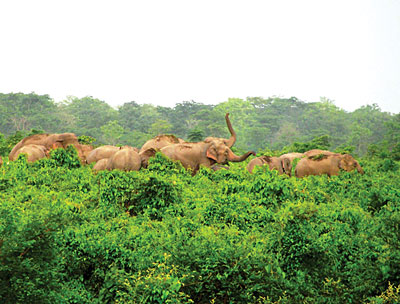 PICS: KRISHNA SINJALI |
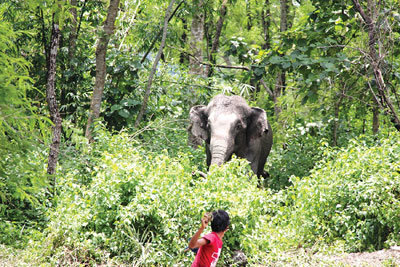 |
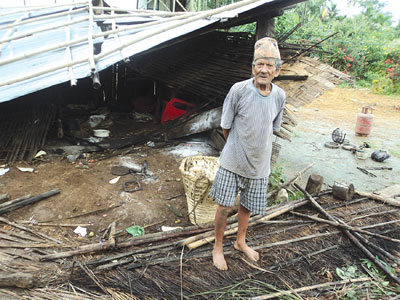 |
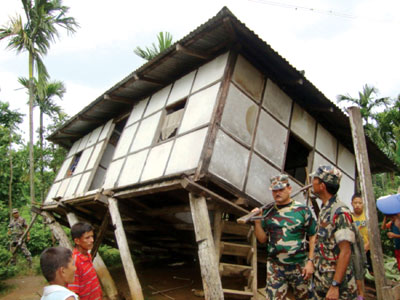 |
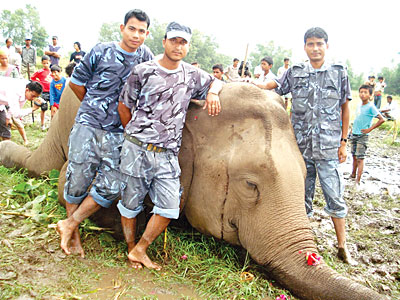 MAN AND BEAST: Herds of elephants moving through the jungle in Jhapa recently. Brave villager confronts bull, but often to no avail. A Jhapa farmer standing outside his broken home. The army is called in to shoot the elephants, and one is downed. |
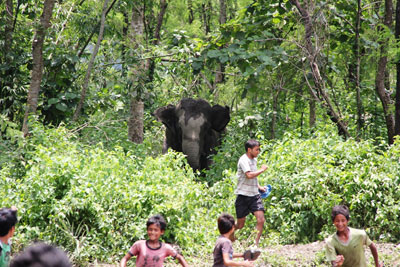 |
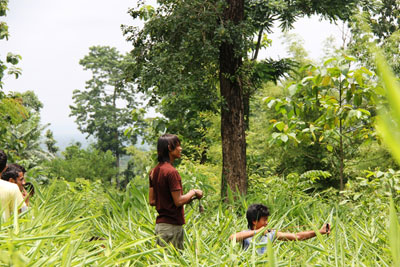 |
Read also:
From poppies to paddy, RUBEENA MAHATO in PARSA
Farmers in Parsa have found better cash crops than opium and marijuana


